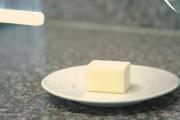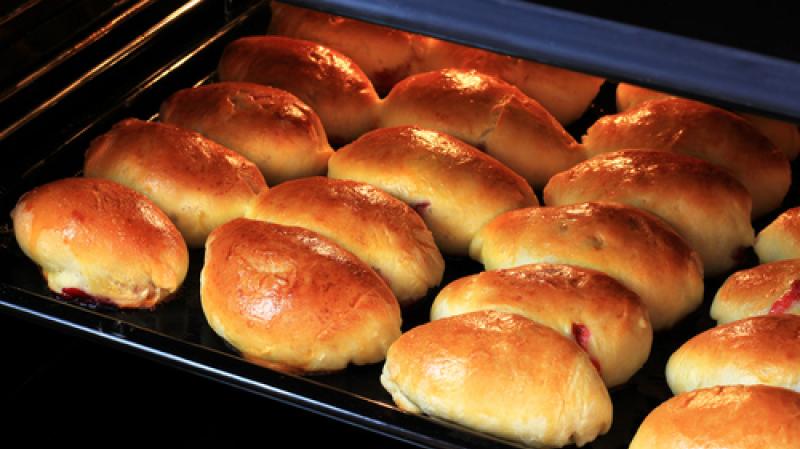Sunflower oil, its composition and beneficial properties. Unrefined sunflower oil. What is cold pressed oil? Cold sunflower oil
Cold pressed oil is an essential ingredient in your daily healthy diet. Its benefit lies in the fact that at the time of manufacture, it retains all the vitamins and minerals that are present in the raw material without the use of harmful impurities.
Definition
For cooking, there is a unified cold pressing technology, which ultimately gives the most delicious and healthy product. The result is an ingredient of the highest quality, which is used both for cosmetic purposes and in food. The oil perfectly retains a considerable amount of trace elements, phospholipids, vitamins and acids. All this is achieved due to the fact that the structure of biological substances is not disturbed during production.
The process of such pressing consists in pressing the required seed while heating the mass to 45 degrees. It should be noted that with this technology, a smaller volume of raw materials is provided when compared with other manufacturing options.
How is it good for your health?
To date, cold-pressed have filled the shelves of supermarkets, but not everyone knows about their usefulness, and they prefer the gas station familiar to many.
In order to understand the need for the use of raw materials, you need to understand the technological process of its manufacture. Seeds of sunflower, flax and other ingredients are sent to a special press, after which juices are squeezed out of them under high pressure. In this regard, the temperature of the filled mass rises.
It should be noted that even those who follow a raw food diet can safely use this product in food.
Thanks to this manufacturing method, it retains all the vitamin complexes inherent in a particular type of oil. It also contains amino acids and natural ones that are involved in the formation of cell membranes, and they, in turn, are responsible for the normalization of metabolism.
How to choose
It must be remembered that a real product at the time of production should not be susceptible to chemical processing, as well as the introduction of various preservatives. These supplements are essential for those looking to improve their health and consume natural foods. Based on the foregoing, when choosing, it is necessary to be guided by the presence of a pleasantly pronounced aroma, as well as a qualitatively different taste.

For example, the first cold pressing, like the products of the same manufacturing method, deteriorate quickly enough, this confirms their naturalness. They have a sediment and good turbidity. Using such dressings in your diet, you can improve your health. When buying, you need to be careful, especially for raw foodists, since some manufacturers may increase the manufacturing temperature up to 90 ° C. With this treatment, beneficial substances begin to disappear. A product that smells like burnt or burnt oil does not meet all production standards.
Equipment
For manufacturing, you will need a screw oil mill, which should include a press for cold-pressed oil. Such devices are of different types. The main difference is the amount of processed raw materials as well as the output power. For small businesses, machines that process 6-10 tons of seeds per day are perfect. For larger firms, you need to choose devices with higher performance.
What is the difference between cold and hot pressing
Today, a huge number of oil manufacturers have appeared on the sales market, as such products are becoming more and more popular. Prices for such products vary greatly. It turns out that the label "unrefined" does not always mean that the oil is made in compliance with all requirements and will bring maximum health benefits. The processes can be divided into hot and cold pressing. In the production of the first type, a high temperature is used, which, in turn, accelerates the production of the product. Much more oil comes out with this treatment than with the second option. By using a different kind of manufacturing, you can get a much more useful end result. This technology allows you to get the highest quality product, which, in turn, is more expensive, because up to 30% of the oil remains in the cake.

Hot pressing reduces the amount of nutritional and beneficial properties. With flawless extraction, there should be no harsh strong taste and aroma. Also, the oil, when swallowed, pleasantly envelops the throat and leaves behind a light taste. In order to choose the right cold-pressed oil, you should pay attention to the inscription - Extra Virgin. The difference in quality and usefulness for the body is great, so the decision remains personally for everyone.
Olive
Production starts immediately after harvest, meaning the dates fall between late November and early December. The berries must be peeled from twigs and leaves, and then washed thoroughly. Further, the fruits are crushed on stone millstones, and the resulting paste is well mixed and heated to a temperature of no more than 27 degrees. A traditional press or centrifuge is then used, so that the olive oil is cold pressed.
The oil can be distinguished by its fatty acid content. The smaller their number, the higher quality and more expensive the product is. The difficulty in manufacturing is that these fruits, like many others, begin to oxidize in air, as well as when using a very high temperature. Therefore, in order to reduce this percentage, production must be carried out as quickly as possible.

Cold pressed olive oil is considered very beneficial and is most often done mechanically. In its composition, such oil can formally contain up to 1% fatty acids, but such an indicator for serious companies is inappropriate. The most famous manufacturers tend to eliminate or reduce the presence of this component altogether.
This factor is due to the fact that the reaction begins to occur immediately at the time of the removal of the fruit. The closer the press is, the better the finished product is.
Sunflower
To obtain oil, you must use fresh seeds. The quality, first of all, will depend on the condition of the source material. The seeds must be oilseeds with a moisture content of no more than 6%, otherwise the product will be too watery as a result. A significant role is played by the degree of ripening, as well as the received heat and light during the growing process.
Cold pressed is the most useful, it contains all the microelements necessary for the body.

In its composition, it has the following vitamins:
- A (improves vision well);
- D (ensures the exchange and absorption of calcium);
- E (helps to maintain youth, health, and is also considered a natural antioxidant);
- K (ensures the correct operation of the system responsible for blood clotting).
Such a product improves the functioning of the liver and the digestive system, fights early aging and strengthens the immune system. Its harm lies only in its high calorie content, therefore, it is not customary to consume oil in large quantities.
Linseed
Cold pressed linseed oil is recommended for use in food, as well as in folk medicine and cosmetology. Its composition is simply unique and contains such as Omega-3 and Omega-6. Before purchasing such a product, you should consult your doctor, as there are restrictions on health effects.

Beneficial features:
- the level of cholesterol in the blood is significantly reduced;
- cold-pressed oil is an excellent remedy for the prevention of atherosclerosis, therefore, it makes our life longer, as it prevents the development of strokes and heart attacks;
- it contains almost all the B vitamins, which have a positive effect on the nervous system;
- vitamin E contained in the oil is an essential antioxidant;
- the product forms and improves immunity;
- helps to absorb calcium;
- stabilizes fat levels;
- useful for children;
- restores the strength of athletes after a hard workout;
- recommended in the postoperative period;
- heals cuts and wounds well;
- stabilizes the endocrine system;
- helps in losing weight;
- used in diabetes mellitus, as it improves the absorption of insulin by the body.
Castor
Cold-pressed castor oil is obtained from It has a light yellow hue, which does not form a film and does not dry out. It has a number of valuable properties. It is very often used in cosmetology, as it perfectly nourishes, moisturizes and protects the skin, smoothes wrinkles and prevents premature aging. Has excellent whitening properties, helps in the fight against freckles. Cold pressed oil is also great for hair care, shine and strengthening. Well stimulates the growth of eyelashes and eyebrows, an irreplaceable remedy for dandruff.
Used for deep cleansing of the gastrointestinal tract. It is considered the easiest aid for weight loss, as well as for improving metabolism.
Grape
Cold pressed is characterized by significant antioxidant properties. The use of 1 tbsp. l. This product covers the daily need for vitamin E. The extract is extracted from the seeds of the fruit. Since they contain a large amount of chlorophyll, the final product has a greenish tint. Due to the presence of this component in the composition, when consumed, damaged tissues and mucous membranes heal, and also has a bactericidal effect.
The oil is very light and pleasant to the taste, practically odorless. It is quickly absorbed into the skin and has a beneficial effect on it, for which it is often used in cosmetology. It is also important for medical purposes for the prevention of female and male problems in the genital area and oncology. Perfectly boosts immunity and improves overall health.
Can I fry?
Many people wonder if it is allowed to cook food using extra cold pressed oil? Such an action, of course, is permissible, but at this moment the ingredient loses its unique taste and aroma, as well as its positive properties. It's too useful raw for such a utilitarian use. Its bright taste is not combined with all products, for example, fish should not be cooked on it at all. Good quality oils that have a neutral taste are perfect for frying. This product undergoes special processing and is suitable for such purposes, without losing all its useful properties.

In order not to be disappointed after purchasing the selected gas station, it is necessary to take into account some factors. At the time of purchase, you need to pay attention not only to the expiration date, which is very small, but also to the packaging. Since the product is afraid of light and quickly oxidizes, it must be in a dark glass container and be hermetically sealed. Another important point is its storage at home, subject to the same conditions. After the expiration date, it is better not to use it in food, because this can affect the health condition.
Cold-pressed oil costs significantly more than chemically refined and processed products, and therefore you can be sure that manufacturers monitor the quality of their goods and control the presence of counterfeits.
For reference:
During the receipt, processing and storage of oil, it is oxidized with oxygen, which leads to a deterioration in the nutritional value of the product.
Peroxide number is a chemical indicator reflecting the degree of oil oxidation caused by the accumulation of peroxide compounds (peroxides and hydroperoxides) during oil oxidation during storage.
According to GOST 1129-2013 “Sunflower oil. Specifications "the maximum value of the peroxide number should not exceed 10 mmol of active oxygen per kilogram for grade 1 oil. For the "premium" variety - no more than 2 mmol / kg. For higher - no more than 4 mmol / kg.
Poorly refined and stale oil has a higher peroxide value. The higher the peroxide number, the longer the oil was stored, including in the light. It often happens that the shelf life has not yet expired, and the oil is already bitter. It is possible that it was made from low quality raw materials, rancid sunflower seeds.
- If everything was in order with the acid number of the samples, then the peroxide number failed. Samples "Golden Seed" and "Zateya" according to this indicator, they do not correspond to the "Extra" grade indicated in the marking (they correspond only to the first grade). With an allowable 4 mmol / kg, they have a peroxide value of 5.6 and 5.8, respectively.
- The situation with oil is even worse "Good"... The "premium" variety allows oxidation of only 2 mmol / kg, while our sample has 5.7 mmol / kg. Let us remind you that premium grade sunflower oil is intended for dietary and baby food. In this case, the sample "Good" not only declared, but even the highest grade does not correspond!
Samples "Blago", "Zateya", "Golden Seed" are blacklisted.
How to tell if the oil is tainted?
The most common type of sunflower oil falsification, as well as in general vegetable oils, is its assortment falsification, characterized by a re-grading of such oils or the substitution of one type of oil for another. For example, refined deodorized premium sunflower oil can be easily replaced with extra or first grade oil, and valuable types of oils, which include sunflower, olive, corn, camelina, are replaced with less valuable rapeseed, cottonseed and other oils.
The problem is that refined oils, after a thorough cleaning process, lose their characteristic coloring and aromatic substances, becoming virtually impersonal, and it is virtually impossible to distinguish one type of oil from another without special equipment.
With high-quality falsification, a violation of the technology for the production of vegetable oil can be observed.
The quality of sunflower oil directly depends on the quality of sunflower seeds, conditions and terms of their storage before processing.
Poor quality raw materials, outdated storage facilities and production lines, non-compliance with production processes are the reasons for obtaining low quality oil, which can be passed off as high quality.
Information falsification is misleading a consumer by providing inaccurate or distorted information about a product.
It should be noted that such data on sunflower oil, such as the name of the product, the date of production, can also be falsified.
Frosty freshness
For reference:
Unrefined sunflower oil cold pressed has a pleasant aroma and taste, it is ideal for dishes that are not subject to heat treatment. It is not suitable for the frying process.
Refined Frozen Oil optimal for frying and baking, but its biological value is reduced in comparison with unrefined due to the destruction of some vitamins during the cleaning process.
Unfortunately, such a product cannot be stored for a long time, it quickly becomes cloudy and rancid and "burns" when frying. To improve the quality, the oil is frozen during the refining process, waxes and waxy substances are removed from it. Frozen oil acquires a good presentation, since waxes during storage can lead to the formation of turbidity.
The experts performed a “cold” test and a “soap” test on all oil samples. With the help of the first, particles of wax and wax-like substances can be found in the oil. The soap test shows the presence of soap-like substances that produce an unpleasant residue. According to GOST, there should not be any of those or other substances. All samples passed the test with flying colors.
Note that oil is not always cold pressed before refining. Cold pressing is a more expensive way to obtain vegetable oil. However, it does not form dangerous trans fats in the oil.
No trans fatty acid isomers were found in all the samples studied. It is believed that they can appear during severe heat treatment of the oil. Consumption of trans fats has been shown to increase cardiovascular disease and mortality.
The mass fraction of the detected trans-isomers in the fat isolated from all samples is in the range of 0.1-0.2%, which corresponds to the "background" content of trans-fats in non-hydrogenated vegetable oil and does not pose a health hazard.
All samples correspond to the organoleptic characteristics of refined deodorized frozen sunflower oil.
Toxic mayhem
For reference:
A high value of the anisidine number of the oil indicates a deep deterioration of the product, caused, for example, by improper storage under unsatisfactory conditions or prolonged thermal or mechanical stress.
For oils of the highest grade and “premium” grade, the anisidine number should not exceed 3 units / g.
This indicator was not exceeded in the samples under study. However, the oil "Good"("premium" variety) anisidine number 2.8 units / g (very close to the maximum allowable limit). Formally, the standard has not been exceeded. But in combination with a high peroxide number, a high anisidine number indicates that the oil has undergone significant oxidation processes.
Minimum aldehyde content in oil "Golden Seed"- 0.3 units / g.
What should you pay attention to when choosing vegetable oil in a store?
The first step is to pay attention to the storage condition of sunflower oil.
Unfortunately, even the highest quality sunflower oil can deteriorate when exposed to natural and artificial light. Therefore, the best option would be oil in a darkened bottle or a bottle from the back of the shelf.
When choosing oil in a store, you need to look at the date of manufacture of the oil, its shelf life. Do not forget to pay attention to the shelf life of the oil, since by the end of the shelf life the peroxide and acid numbers "increase".

Security
The nutritional value
| Name | Anisidone number, units / g | Acid number | |
|---|---|---|---|
Unrefined sunflower oil is divided into premium and first grade products and oil for industrial processing. Since Roskachestvo is interested only in the oil that consumers meet on store shelves, only oils of the first and highest grades took part in this study. In the course of a rolling study of unrefined sunflower oil, the quality and safety characteristics of 17 domestic products under the trademarks were studied: Zateya, D, Kubanochka, Golden Seed, My Sun, Dary Pridonya, Dary Kubani, VkusVill, Alyonushka, GLOBUS, Selyanochka, Rossiyanka, Yug Rusi , Kuban favorite, Every day, Golden sunflower, Sloboda. Samples were purchased at various retail outlets in Moscow and the Moscow region. The products were carefully researched according to 31 parameters. The cost of the selected samples at the time of purchase ranged from 75 to 130 rubles.
Russian quality system standard
The standard of the Russian quality system for unrefined sunflower oil, in comparison with the current GOST, sets higher requirements for color and acid numbers, which indicate the quality and degree of purification of the product. The increased Roskachestvo standard also more strictly considers the parameters of the mass fraction of moisture and volatile substances in the product and the mass fraction of non-fatty impurities and excludes the use of antioxidants, flavors and other food additives. The use of sunflower seeds obtained with the use of GMOs is not allowed. The required level of localization of production for the award of the Russian Quality Mark is at least 98% of the cost of goods.
Differences from refined oil
Unrefined sunflower oil, like hundreds of years ago, is subjected to exclusively mechanical refining during production, in contrast to refined (including chemically refined) product, which was previously investigated by Roskachestvo. Therefore, it has an intense color, pronounced taste and smell. The appearance of this product allows for the presence of slight turbidity, sediment, since the unrefined oil contains accompanying substances (phospholipids, tocopherols, carotenoids and wax), which significantly increase the physiological value of the product. Unrefined oil is a rather capricious product: it cannot stand light and can only be stored at room temperature, and the opened package should be immediately sent to the refrigerator. According to GOST, the shelf life of unrefined sunflower oil is four months. When buying, do not forget to pay attention to the date of manufacture: keep in mind that the product must be eaten quickly enough. In addition, it is worth knowing that the highest quality unrefined oil is obtained from the fresh harvest (in August - September).
Sometimes, to extend the shelf life, manufacturers resort to hydration by subjecting the oil to additional water treatment. Through this process, phosphatides, mucous membranes and other hydrophilic substances precipitate in the form of flakes, after which they are removed. Experts note that hydrated oil is much paler in appearance, and poorer in taste and smell than the "classic" unrefined product. There was no hydrated sunflower oil among the samples studied.
History:
The sunflower was brought to Russia from Holland during the time of Peter the Great - then the flower was grown exclusively in gardens for beauty. And for almost a century no one even suspected that oil could be obtained from the seeds of this unusual plant. Only in 1829, a serf from the Voronezh province, Daniil Bokarev, decided to benefit from the "sun": he collected seeds and tried to extract oil from them. Four years later, the first oil mill in the world was built in the village. The church recognized sunflower oil as a lean product, so its second name appeared - vegetable oil. In those days, only unrefined sunflower oil was produced, and the technology of its production has not undergone major changes since then.
A few words about spinning
Unrefined sunflower oil is obtained in only one way - by pressing, during which the crushed sunflower seeds are put under the press. In the production of oil, cold and hot pressing is distinguished. It is believed that the lower the temperature during oil separation, the higher the quality of the finished product. So, when cold pressed, the oil retains all useful substances, vitamins and trace elements, while it has a mild odor, which for many consumers is the determining criterion when choosing. During hot pressing, the seeds are exposed to higher temperatures, this leads to an increase in the actual yield of the product, but reduces its quality. It should be said that formally, both during cold and hot pressing, the oil heats up, the difference between the two methods lies in the applied temperatures, and each manufacturer has their own. It is also important to pay attention to products that are marked with the inscription "first spin". It may seem to some that this indicates a higher quality of oil, but this is not the case. The unrefined product, as experts explain, is always extracted from the seeds using the so-called first pressing, nothing special about that. Under this phrase hides all the same method - the method of pressing.
Reference:
On the label of unrefined sunflower oil, you can sometimes see the inscription "frozen". In this study, out of 17 samples, two were made by freezing: Kubanochka and Sloboda... The essence of this method is to slowly cool the oil with very gentle stirring. This method has practically no effect on the palatability; the characteristic smell of oil and the "greasy" taste, which some consumers do not like, are only slightly reduced. At the same time, all vitamins and nutrients remain intact, and the oil becomes more transparent. So do not bypass the frozen oil by the side, in terms of its qualities it is no worse, but it will be stored longer.
Freshness and purity of the oil
During laboratory tests of sunflower oil, experts pay special attention to the parameters of its freshness and purity. The quality of the oil in a product is expressed by the so-called acid number. It shows the content of free fatty acids in the oil and depends on the characteristics of the raw material - the seeds from which it is obtained. The GOSTs in force in the country establish rather strict requirements for this parameter: the acid number for unrefined sunflower oil of the first grade should not exceed 4, and for the highest - 1.5 units. The Roskachestvo standard for this indicator set the requirement for all varieties at 2.25 units. Studies on this indicator gave optimistic results: all selected samples did not exceed the upper limit of the requirements of the Roskachestvo standard. This allows us to conclude that there were no stale samples among the studied oil.
Color matters
No less important in the study of unrefined sunflower oil by experts is such an indicator as the color number - it tells about the degree of oil purification. According to GOST, this indicator for unrefined sunflower oil of the first grade should not exceed 25, and for the highest - 15 units. The Roskachestvo standard defines the upper limit at 15 units for both the first and the premium grade. Almost all samples met the Roskachestvo standard for this indicator. It is worth mentioning that two products, Selyanochka and South of Russia, passed the upper limit of the requirements - their color number was 15. The lowest values of the color number, namely 2.5 units, were found in samples under the trade marks: My sun, Gifts of the Kuban, D and VkusVill.
You need to be persistent
Sunflower oil cannot resist light, no matter what is its source - the sun or an incandescent lamp. The process of fat oxidation constantly occurs in the product, and in the light it accelerates several times. That is why it is better to store such natural oil in a dark place. The oxidation state of the product due to the accumulation of peroxide compounds reflects the peroxide value, which is also investigated during testing. If the oil was not stored correctly (for example, the seller stored it in a light warehouse), the peroxide values may exceed the permissible levels. At the same time, the shelf life of the product will decrease and the characteristic rancid taste may appear. The current state GOST peroxide value for the first grade sets a maximum of 10 units, for the highest - 7 units. The Roskachestvo standard established the requirements as in the TR CU: 10 units. Based on the data received from the laboratories, the goods under the trademarks could not meet the requirements of the TR CU: My sun(11.4 units) and Golden sunflower(12 units).
Reference:
Each of the presented samples was also tested for the content of toxic elements such as lead, cadmium, arsenic, mercury, iron, copper, as well as for the content of pesticides and radionuclides. Some samples in terms of copper content passed the upper limit of the standards and, taking into account the deviations of the method, could not meet the increased requirements.
Unpretentious
The indicators of the mass fraction of moisture and volatile substances and the mass fraction of non-fatty impurities, the requirements for which were increased by the Roskachestvo standard, were normal for all selected samples. As for the norms of the mass fraction of phosphorus-containing substances, all samples also met the norms of GOST and the Roskachestvo standard. The indicator of the content of benzopyrene, a carcinogenic substance, which is always closely examined by experts, was found to be normal in all selected samples. There is also no need to worry about radionuclides: not a single sample exceeded the radiation safety criterion. In terms of the number of pesticides, no violations were found either.
Reference:
Sometimes marketers resort to various tricks in pursuit of profit. Roskachestvo draws attention to the fact that if products are labeled with the phrase "no preservatives", this is another trick. They cannot be in oil by definition, this product deteriorates from oxidation with oxygen, and not because of the activity of microbes, from which preservatives are designed to protect. The inscription “cholesterol-free” in this sense is also quite eloquent. In principle, it cannot be in vegetable oil either, because this substance is synthesized in the animal body, and sunflower oil is entirely a vegetable product. In the event that the label states that the oil is "enriched with vitamin E", it must be remembered that this vitamin is present in the product initially.
People are increasingly turning to natural sources to take care of their health.
Various plants growing on Earth have invaluable properties that can have a beneficial effect on the human body, saturate it with the elements necessary for vital activity, improve metabolic processes, maintain its strength, strengthen the immune system, and in many cases help cure various diseases. Today vegetable oils are in great demand all over the world. And this is no coincidence. The lack of natural products in modern man's diet makes people look for a worthy alternative.
An obvious pattern can be traced: the fewer natural products on the shelves of stores, the more popular are natural vegetable oils, as a natural (natural) "immunity graft".
Edible vegetable oils, obtained by cold pressing using a special technology, concentrate in their composition all beneficial features plants, nuts and fruits from which they are produced.
In addition to the wonderful culinary properties that many of these vegetable oils have, they contain a number of unique substances, trace elements and vitamins, the benefits of which for the body cannot be overestimated.
Eating natural vegetable oils can compensate for the lack of many biologically active substances necessary for the human body for full life.
The most valuable from a biological point of view are unrefined vegetable oils of the first cold pressing.
All the components valuable for our body are most fully preserved in them: vitamins, essential amino acids, minerals, polyunsaturated fatty acids (Omega-3 and Omega-6), etc.
Vegetable oils (vegetable fats) - fatty products extracted from vegetable raw materials and consisting mainly of triglycerides of higher fatty acids. The main sources of vegetable oils are seeds (fruits) of oil plants (oil crops).
Vegetable oils They are also found in the seeds of some fruit trees (apricot, peach, cherry, sweet cherry, almond), seeds of grapes, watermelon, tomatoes, tobacco, tea, as well as in various oil-containing waste of food production processing agricultural raw materials. The latter include mainly the bran and germ of cereal seeds.
The shell of wheat and rye grain contains 5-6% oil, in the germ - 11-13% and 10-17%, respectively; in the germ of corn - 30-48% oil, millet - about 27%, rice - 24-25%.
Unlike animal fats, vegetable oil contains unsaturated fatty acids, which are easily absorbed by the body and do not form deposits on the walls of blood vessels. Another difference between natural vegetable oils is the increased content vitamin F needed by the body. Its deficiency negatively affects primarily the mucous membrane of the gastrointestinal tract.
A constant lack of vitamin F leads to vascular disease (from sclerosis to heart attack), decreased resistance to viruses and bacteria, chronic liver disease and arthritis.
To maintain health, you need to consume at least 15-20 g of unrefined hemp, linseed, sunflower or any other vegetable oil daily!
It must be remembered that a preventive and therapeutic effect can only be expected from the consumption of vegetable oils obtained by the method of cold pressing at a temperature not exceeding 40-45 ° C - dark, odorous, with a large sediment, the so-called unrefined oils. This is a delicious and very healthy oil. But it has one significant drawback. Being biologically active, alive, it quickly becomes cloudy, bitter, bitter, oxidizes in air, in the light and in warmth and quickly loses its beneficial properties! Basically, various refined products are presented in retail, i.e. refined oils. During refining, the oil is purified from various impurities and impurities undesirable for the manufacturer, but at the same time it almost loses its taste and smell, as well as all its useful properties. It is for this reason that not everyone likes refined oil. Some people prefer the smell and taste of a natural product and believe that cleaning is detrimental to it. Refined oils made by hot processing at a temperature of 160-200 ° C are devoid of biologically active elements and vitamins and therefore do not deteriorate. They can be stored in light bottles for a long time, they are not afraid of sunlight. Refined vegetable oil is recommended for frying only. .
In food - in salads, seasonings, side dishes - only natural unrefined oil should be used. Cold pressed oils are obtained by pressing at low temperatures. At the same time, no chemical substances are used, neither for cleaning, nor for preservation, nor for imparting color and odor. This method (cold pressing) is the most gentle, because carried out without additional oil heating. An increase in pressure in the mixture is accompanied by a natural increase in its temperature up to a maximum of 55 ° C, which does not negatively affect the quality of the resulting oil.
Cold pressed vegetable oil is characterized by a pronounced aroma and taste. The content of valuable substances (lecithin, vitamins, unsaturated fatty acids) in such oils is maximal.
Vegetable oils should not undergo refining, which significantly reduces their quality and biological value. Therefore, it is absolutely normal that unrefined oils often become cloudy. The method of pressing at low temperatures (cold pressing) does not allow obtaining vegetable oil in large quantities, which explains the rather high price of such oil. The oil produced by this technology is called natural extra or first cold pressing.
EXPLORING THE LABEL
When buying any vegetable oil, read the label carefully - it is the label that is often designed to force you to buy a product, and may contain inaccurate or distorted information.
For example, if it says that the bottle contains refined oil and it contains fat-soluble vitamins A or E, then this is a direct deception, since there are no natural fat-soluble natural vitamins in refined oil - they, like most other useful substances, are removed during the refining process. ... Many vegetable oil packages indicate that the oil is cholesterol free.
Typical information falsification misleading the buyer and intended only to attract attention.
There is no cholesterol in any vegetable oil, because this substance is synthesized only in the body of animals and humans. Whatever it is - expensive, cheap, first spin or not.
Also, all vegetable oils contain some amount of vitamin E.
Thus, the labels on the label "Contains Vitamin E" or "Does not contain cholesterol" are simply information that is true for any vegetable oil. And yet, if information about the content of B vitamins in it is found on the label or in the text of an article about vegetable oil, then this is complete nonsense!
B vitamins are water-soluble and cannot be contained in pure vegetable fat!
Each vegetable oil contains all types of fatty acids in varying proportions. Oils with a high content of monounsaturated acids, and most of them in olive oil and oil walnut, do not lose their properties when cooking hot food. However, polyunsaturated fatty acids - also called "essential" ones - are also important. Like vitamins, essential acids are not produced by our body and must be supplied from outside.
When buying refined deodorized oil, pay attention to the fact that it comes in two brands - "D" and "P", differing from one another in price and, accordingly, in quality. More expensive refined deodorized oil of the "D" brand is made only from raw materials of stable quality, and it is guaranteed that there are no harmful impurities in it. It is intended for direct consumption and can be used to fry meat, fish, vegetables and flour products. It can be used to prepare food for children and diet food. Cheaper refined, deodorized "P" grade vegetable oil is made from lower quality raw materials and may contain residues of chemicals that were used to refine it. This oil should only be used for frying. Sometimes on the label of vegetable oil you can read: "Expiration date 12 months" and next: "No preservatives."
These two phrases exclude one another.
Shelf life of oil without preservatives is 4 months. For a longer time, the oil is stored only with the addition of artificial antioxidants.
Vegetable oil, especially refined, devoid of natural antioxidants, with a shelf life of more than 4 months, necessarily contains synthetic antioxidants that prevent its decomposition.
It must be remembered that vegetable oil does not have a second freshness.
Only oils of the highest and first grades are intended for consumption.
If the label or price tag says that this is second-class oil, then, tempted by its cheapness, you can spend immeasurably more money on the purchase of medicines in order to save yourself from the consequences of eating it.
The second grade oil is only suitable for further refining and processing into margarine and similar products.
HOW DO THEY DIFFERENCE?
At first , by the method of oil production .
It - spinning and extraction.
Pressing- mechanical extraction of oil from crushed raw materials.
It can be cold and hot, that is, with preheating of the seeds. At the first cold pressing, the oil product (olives, seeds, nuts) is pressed on the press, and then filtered (to give it a presentation).
And nothing else is done with this oil.
Cold pressed oil is the healthiest because it has the highest content of vitamins and phosphatides. , has a pronounced odor , but cannot be stored for a long time.
Extraction- extraction of oil from raw materials using organic solvents.
It is more economical as it allows maximum oil recovery.
In the hot (second) extraction, the cake remaining after the first extraction is slightly heated, and then a secondary extraction is performed.
The resulting oil is filtered.
It is this oil with the aroma of roasted seeds that we most often buy on the market.
Light heating before spinning has practically no effect on the content of vitamin E, since this vitamin is quite heat-resistant. The oil obtained by the second extraction becomes less cloudy and splashes during frying. This is the most cost effective way to produce oil. The oil obtained in one way or another must be filtered - a crude oil is obtained.
After such operations, unrefined oil is obtained.
Secondly , vegetable oils differ in the degree of purification - raw, unrefined and refined .
Unrefined oil has slightly lower bioavailability than raw, but has a longer shelf life.
Oils are separated depending on the way they are purified:
Unrefined - purified only from mechanical impurities, by filtration or settling. This oil has an intense color, a pronounced taste and smell of the seeds from which it was obtained. Such oil may have a sediment over which slight turbidity is allowed. All useful biologically active components are preserved in this oil. Unrefined oil contains lecithin, which significantly improves brain activity.
Any unrefined oil is afraid of sunlight.
Therefore, it should be stored in a cabinet away from heat sources (but not in a refrigerator).
Natural sludge is allowed in natural oils.
And it is this kind of oil that we most often buy packaged in bottles in stores. The most complete are crude oils, they completely retain phosphatides, tocopherols, sterols and other biologically valuable components. Unrefined vegetable oil is more useful than refined oil, since it contains many substances that are destroyed during purification.
For example, to make the oil transparent, phospholipids are removed from it, which help to eliminate cholesterol from the body. True, some vegetable oils require mandatory cleaning, as they contain harmful impurities. So, cotton seeds contain the poisonous pigment gossypol, by refining this pigment is completely removed.
Characteristics of unrefined vegetable oils
A rich selection of vegetable oils and not always clear names on import labels often baffle us. On sale you can see amaranth, olive, sunflower, soybean, corn, peanut, sesame, rapeseed, palm oil, grape seed oil, black cumin oil, etc. What is the difference between these oils and what should be guided when choosing one or another vegetable oil? Vegetable oils belong to the group of edible fats.
Unsaturated fatty acids predominant in vegetable oils affect the amount of cholesterol , stimulate its oxidation and excretion from the body, increase the elasticity of blood vessels, activate the enzymes of the gastrointestinal tract , increase the body's resistance to infectious diseases and radiation .
The nutritional value of vegetable oils is due to their high fat content (70-80%), a high degree of their assimilation, as well as unsaturated fatty acids and fat-soluble vitamins A, E, very valuable for the human body.
The raw materials for the production of vegetable oils are the seeds of oil plants, soybeans, and the fruits of some trees.
Adequate oil intake is essential for prevention of atherosclerosis and related diseases .
Useful substances of oil normalize cholesterol metabolism .
Vitamin E, being an antioxidant, protects against cardiovascular diseases, supports the immune system, prevents aging and atherosclerosis, affects the function of the sex and endocrine glands, muscle activity .
Promotes the assimilation of fats, vitamins A and D, takes part in the metabolism of proteins and carbohydrates.
Besides, improves memory, as it protects brain cells from free radicals. All oils are an excellent dietary product, have a memorable taste and special, only characteristic of each oil, culinary properties. There are two ways to get oil:
Hydrated - oil purified with hot water (70 ° C), sprayed through hot oil (60 ° C).
Such oil, in contrast to refined oil, has a less pronounced smell and taste, less intense color, without turbidity and sediment.
Refined- cleaned of mechanical impurities and neutralized, that is, alkaline treatment. This oil is transparent, without sediment, sediment. It has a color of low intensity, but at the same time a pronounced smell and taste.
Deodorized - treated with hot dry steam at a temperature of 170-230 ° C under vacuum conditions. The oil is transparent, without sediment, weak in color, with a weak taste and odor. It is the main source of linolenic acid and vitamin E. Packaged vegetable oils are stored at a temperature not exceeding 18 o C. Refined 4 months (with the exception of soybean oil - 45 days), unrefined oil - 2 months.
How to buy and store
All vegetable oils have three common enemies: light, temperature and air, which intensify the oxidation process. Therefore, never keep oil near the stove or on the windowsill, or in an open bottle. It is better to keep valuable olive oil in the "warmest" compartment of the refrigerator. Even valuable olive oil should not be reused: toxic compounds with mutagenic and carcinogenic effects are formed in it. And the nutrients that were previously in the crude oil have already been destroyed anyway.
When buying, be sure to read the information on the label.
She will tell you a lot about the quality of the product.
The first thing to look for is the expiration date.
The smaller it is, the more natural the oil is.
Never stock up on oil for future use: spoiled oil becomes rancid, with an unpleasant taste and smell.
And there is no need to talk about the benefits of such oil.
Do not store vegetable oil in plastic containers
http://blogs.mail.ru/mail/vasilyevich05/57155843C0469092.html
From it, the oil extracts substances - plasticizers.
They are poorly excreted from the body, accumulate in the liver, kidneys and can provoke various diseases.
Also, remember that only premium and first grade oils are intended for consumption.
To the hostess - a note
Any vegetable oil obtained by cold pressing is stored in glassware in a dark, cool place for no more than 3-4 months.
Storing raw and unrefined oils at elevated temperatures exposes the light to a rancid taste and odor.
Such oils should not be eaten because they contain toxic compounds that can cause numerous diseases. For the same reason, oils that have expired should not be used in food.
For long-term storage, vegetable oil of any degree of purification is kept in a dark, cool place in large bottles with a narrow neck - for less contact with air. To prevent premature rancidity, you can use the advice that has come down to us from the 19th century: pour a little salt into each bottle and put a few clean washed and dried beans.
The sediment formed during the storage of unrefined oil is not harmful to health and consists of phospholipids, macro- and microelements useful for the body.
When heated to high temperatures (260-300 ° C), vegetable oils decompose with the formation of volatile products with an unpleasant odor.
Prolonged heating of liquid vegetable oils containing polyunsaturated fatty acids at a temperature of 120-180 ° C leads to their thickening and loss of useful and taste qualities.
Vegetable oil of any degree of purification cannot be used for frying repeatedly, and even more so repeatedly, since substances with carcinogenic properties appear in it.
Overheating oil is a technique used in a professional kitchen.
It consists in the following: the vegetable oil on which to fry is preheated for five to seven minutes until a white, almost invisible haze and whitening appears.
The oil should not boil.
Overheating is complete if coarse salt thrown into it bounces off with a clicking sound. If the oil boils, hisses, rages, splashes during overheating, this means that the dishes are not clean enough or have not been wiped dry after washing.
High-quality olive oil (first cold pressing) after 1-2 days of storage in the refrigerator at a temperature of 8-10 ° C becomes milky white, thick and does not flow out of the bottle. At room temperature, it again turns into a transparent and liquid without loss of quality.
If, after a few days of storage in the refrigerator, the oil does not whiten completely or only individual white flakes are formed in it, then it is diluted, squeezed from seeds or made from another oil with an aromatic "olive" additive.
Since salt does not dissolve in vegetable oil, then before seasoning a salad of fresh vegetables and herbs with it, the dish is first salted, they wait for the vegetables to give juice, and only then they are poured with oil.
SAUCES FOR SALADS
Sauces, gravies and homemade dressings give salads a varied taste.
It is easy to make them using vegetable oil, lemon juice, natural vinegar, spices, chopped fresh herbs, sugar and salt as the main ingredients.
Sauces, gravies and dressings should not be cooked in large quantities and should not be stored for more than 2-3 days.
Shake the dressing well before seasoning the salad.
Butter sauce.
100ml vegetable oil, 2 tsp ground crackers, 2 eggs, 1 lemon, ground black pepper and salt to taste.
Hard boil the eggs, peel and chop finely.
Fry ground crackers in oil until golden brown, add chopped eggs, juice squeezed from lemon, black pepper, salt and mix thoroughly.
The sauce is served with any boiled vegetables.
Vegetable oil sauce.
1/2 cup vegetable oil, 1-2 tablespoons apple or grape vinegar, 1/4 tsp salt, 1/4 tsp sugar, black pepper to taste.
Mix all the ingredients in a blender or beat thoroughly with a whisk.
Peanut sauce.
200g shelled walnuts, vegetable oil, 1 tablespoon lemon juice.
Crush the nuts in a mortar with a little vegetable oil to make a gruel. Add vegetable oil (at the rate of 3 tablespoons to 1/2 tablespoon of gruel), lemon juice and grind thoroughly until smooth.
Sauce with corn or mustard oil.
1 tbsp mustard, 1 tbsp vegetable oil, half a lemon, 1 tsp sugar, 2 cloves of garlic, 1 tsp each finely chopped parsley and dill.
GRASSES FOR SALADS
Spring gravy.
Mix equal amounts of lemon juice and vegetable oil. Add some chopped green onions and parsley and shake well.
Tomato sauce.
8 parts vegetable oil, 4 parts tomato juice, 1 part lemon juice, 1 part grated celery root.
Mix all products thoroughly in a glass container.
SALAD CONDITIONS
1 tbsp vegetable oil, 1/2 lemon juice.
1 boiled yolk, 1 tablespoon vegetable oil, 1/2 cup lemon juice.
Grind the yolk in a mortar and, stirring constantly, add a little vegetable oil, alternating with lemon juice.
2 egg yolks, 1 tsp dry mustard, 1 onion, 1 tbsp each chopped cilantro and dill, 100 ml grape or apple cider vinegar, 100ml olive oil, ground allspice, salt.
Rub boiled egg yolks through a sieve, mix with dry mustard, salt, pepper, finely chopped onions, dill and cilantro.
Mix the vinegar and olive oil thoroughly, pour them over the prepared mixture and mix again.
Types of vegetable oils.
Those who remember the shops of the eighties will attest that the counters with different types of vegetable oils have changed a lot since then; yes, in fact, the quantitative series has increased ten times.
Previously, in order to collect the entire line of oils in an ordinary home kitchen, you had to run well through the stores in the capital, and this did not guarantee complete success.
Now you can find almost any type of vegetable oil, in any large store.
Most used vegetable oils:
· apricot oil
· avocado oil
· amaranth oil
· peanut butter
· watermelon oil
· mustard oil
· walnut oil
· grape seed oil
· wheat germ oil
· cherry seed oil
· rice bran oil macadamia oil (kindal nut)
· poppy seed oil
· manchetti oil
· almond oil
· nutmeg oil
· sea buckthorn oil
· cucumber oil (borago)
· olive oil
· nut butter (from walnut)
· palm oil
· fir oil
· sunflower oil
· rapeseed oil
· milk thistle oil
· camelina oil
· soybean oil
· pistachio oil
· hazelnut oil
· cottonseed oil
· tea tree oil
· black cumin oil
· rosehip oil
Vegetable oils in cosmetics
Vegetable oils have been used in cosmetics since time immemorial.
In their composition, they are very similar to the fat produced by the skin glands, they are well accepted
Today we will tell you about how sunflower oil is made and what properties this product has. We will also tell you about the types of vegetable fat and what its composition is.
General information about the plant product
Sunflower oil is a vegetable oil that is obtained from the seeds of oilseed sunflower varieties. This is the most common type of vegetable oil in Russia. By the way, it is our country that is one of the leaders in the production of this product in the world.
History of origin
The evolution of the oilseed sunflower as a cultivated plant took place in the Russian Empire. Its industrial processing is closely related to the name of Daniil Bokarev. It was he who in 1829 invented a unique method of obtaining oil from sunflower seeds. Four years later, in the Voronezh province (in the Alekseevka settlement), with the assistance of Bokarev, the merchant Papushin built the first oil mill in Russia. Bokarev opened his own oil mill in 1834. And already in 1835, the active export of this product abroad began. By 1860, there were about 160 oil mills in the Alekseevka settlement.
Sunflower oil production
As mentioned above, sunflower seeds are the source of oil. Most oil extraction plants produce this product using the following technology:
- In a special rushal-weaving department, seeds are cleaned from various litter. In it, crumbling occurs, as well as the separation of the husk from the kernels.
- In the roll shop, all the kernels are passed through the rolls. As a result of this treatment, mint is obtained. Subsequently, it is transported to the press department.

- In it, the mint is heat treated in special braziers. Then the raw material goes to the presses, where, in fact, the pressing oil is squeezed out. In the future, it is sent to storage and sludge. As for the resulting mass, called pulp, which has a high residual oil content (about 22%), it is fed to the oil extraction plant. If the pulp has been squeezed to a residual oil content of 8-9%, this product is called pulp. In some cases, in the oil extraction plant, the mint is sent to the brazier using a conveyor. There it is subjected to heat treatment, or the so-called toasting. After pressing the pulp, the pulp is immediately sent to the extractor.
- The extraction of vegetable oil is carried out in a special apparatus called an extractor. This process is carried out using organic solvents. As a result, a so-called miscella is obtained, as well as a solid fat-free residue, which is moistened with a solvent (that is, meal). Further, oil is distilled from them in an extractor.
After pressing and extraction shops, the oil product is subjected to subsequent purification or refining. In other words, oil is purified from various organic impurities. These methods usually include centrifugation, settling, filtration, hydration, alkaline and sulphate refining, deodorization, bleaching and freezing (that is, the oil is cooled to 10-12 degrees to form wax crystals, which are subsequently filtered).

As for sunflower cake, a very valuable meal is obtained from it. Meal is a high-protein feed product that is included in the diet of livestock, fish and poultry. The content of crude protein in it is about 30-41% and rather strongly depends on the degree of purification and processing of the mint, as well as the class of raw materials used.
As you can see, the production of sunflower oil is not an easy process. Despite this, this product is available to everyone.
Vegetable oil properties
Almost all sunflower oils have the same properties. The raw product has a pleasant aroma and taste. Its density at 10 degrees is 920-927 kg per m3. The pour point ranges from -16 to -19 degrees. The temperature at which sunflower oils are exposed to smoke is 232 degrees. The kinematic viscosity of the product occurs at 20 degrees.
It should also be noted that sunflower oil is classified as semi-drying vegetable oil. When exposed to oxygen (at room temperature), a soft and sticky film forms in it. By the way, semi-drying oils include not only sunflower, but also soybean, safflower, camelina, poppy seed, etc.
There are two types of unrefined sunflower oil: pressed (that is, obtained by cold pressing) and extraction. As a rule, it is produced in oil extraction plants.

The composition of the product
What is the composition of sunflower oils? The manufacturers of this product note that it contains a huge amount of fatty acids, namely stearic, palmitic, myristic, arachidic, oleic, linoleic, linolenic. At the same time, it contains only 1% omega-3 of polyunsaturated fatty acids. Also, omega-6 content prevails in sunflower oil.
The benefits of sunflower oil are directly related to its composition. For example, it contains a large amount of vitamin E, which has a positive effect on the functioning of the digestive tract and the condition of the skin.
It should be especially noted that sunflower oil (refined and unrefined) cannot contain cholesterol. This is due to the fact that it is exclusively of plant origin. Despite this, many manufacturers specifically emphasize its absence. This is for advertising purposes.

Types of oils
What are the types of sunflower oils? Manufacturers produce unrefined and refined products. How do they differ from each other? Not all housewives know the answer to this question. Therefore, we decided to present this information below.
Unrefined or Refined?
Everyone knows that vegetable oils are very beneficial for health. Unlike Soviet times, today you can find completely different types of these products in stores. But how to choose the right one among the many oils?
The main difference between oils produced from the same raw materials is the degree of purification. Both refined (that is, completely refined by means of several stages) and unrefined sunflower oil, the purification of which is limited only by mechanical filtration, goes on sale.

There is an opinion that the first option is completely useless for health. But this is not the case. The fact is that the degree of usefulness of this product is determined by its fatty acid composition. So, in the process of refining, the composition of vegetable oil, as well as the ratio of its fats and acids, does not change. In view of this fact, it can be safely noted that if oil is useless, then it is useless in any form (whether refined or unrefined). And the degree of purification does not affect this in any way.
Product application
In the period from 2007 to 2008 agricultural year, about 10 million tons of sunflower oil were produced in the world. This product is one of the most important vegetable oils in the post-Soviet space. This is due to the fact that it is of great national economic importance.
As for cooking, refined and unrefined sunflower oil can be used for frying and dressing various salads. In addition, cooking oils and margarine are made from it (by hydrogenation). Sunflower oil is also used in the production of canned food, as well as in the paint and varnish industry and soap making. Moreover, it is included in many ointments.

Let's summarize
A spoonful of sunflower oil contains a huge amount of fatty acids and vitamin E. Regularly consuming this product in food, you can forget about digestive problems forever. By the way, sunflower oil is a very popular ingredient in folk medicine. It is used to eliminate severe constipation (by ingestion or making enemas), as well as to smooth the skin. If your hands or face are chapped, brush them with sunflower oil and leave them on for a while. After a few treatments, you will notice that your skin has become soft, smooth and silky, and there is no trace of signs of chapping.
Thus, by purchasing high-quality refined or unrefined sunflower oil, you can not only cook delicious meals, but also noticeably improve your health.













